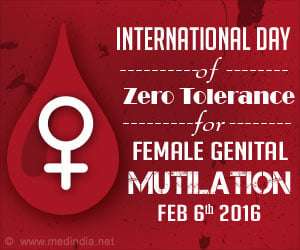Highlights
- Female genital mutilation that intentionally alters or causes injury to female genital organs for non-medical reasons, is part of many cultures worldwide.
- It has long-term emotional and physical consequences, including severe pain, post-traumatic stress disorder, cysts, recurrent infections, and even death.
- The female genital mutilation reconstructive surgery is an effective procedure that increases sexual function and helps heal the associated emotional and psychological wounds.
Ivona Percec reports the use of the technique in three patients in one month.
"Plastic surgeons have a crucial role to play in this recovery, and it’s important for physicians to be informed and prepared to address the surgical and emotional needs of women who seek care for this," Percec said. "Our procedure is simple yet effective and can help victims restore their physical and psychological sense of well-being."
Female Genital Mutilation
The World Health Organization (WHO) defines Female Genital Mutilation (FGM) as, "any procedure that intentionally alters or causes injury to female genital organs for non-medical reasons and with no health benefits."
Internationally, it is regarded as a violation of human rights.
Surgery
All three patients between the ages of 30 and 33 in Percec’s study, suffered from Grade II mutilation, which is defined as the partial or total removal of the clitoris and the labia minora (the inner folds of the vulva), with or without the removal of the labia majora (the outer folds of skin of the vulva).
All three women had recently immigrated to the United States from Sierra Leone. In each case, the women were married but had not told their husbands they had undergone FGM as children.
"These women were embarrassed that they were subjected to this procedure, in particular since relocating to the United States," Percec said. "All of them were able to have intercourse, but without pleasure - usually with pain. None of them ever let their partners see their vaginal area."
The technique involved separating the labia majora, which were connected by scar tissue, then suturing them to make sure they did not re-adhere to each other.
The clitoris, or its remnant, which is naturally covered in mucosa tissue, was left raw to allow it regenerate the mucosa on its own. This also prevented excessive scarring and helped to bring back sensation to the area.
"The other key was treatment after the surgery, which included an antibiotic and pain-reducing ointment twice each day," Percec said. "It’s a naturally sensitive area anyway, so using that ointment was important until the clitoris healed and formed its own mucosa again."
With an average follow up of almost a year, all three patients reported improved sexual function and decreased embarrassment with their partners.
"Female genital mutilation is a violation of the basic rights of women and children," Percec said. "As nations around the world work to eliminate this custom, plastic surgeons can play an important role in the physical, emotional, and psychological recovery of women everywhere."
The findings were reported in the Aesthetic Surgery Journal.
Reference
- Ivona Percec. Female Genital Mutilation Reconstruction: A Preliminary Report. Aesthetic Surgery Journal; (2017) doi.org/10.1093/asj/sjx045
Source-Medindia








